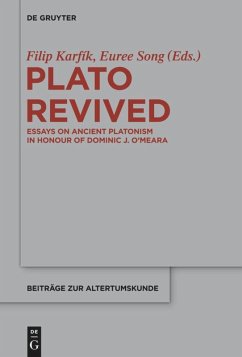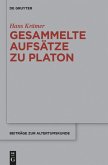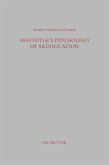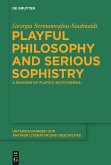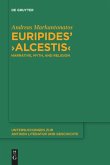The essays compiled in this volume individually address the varied forms in which the revival of Platonism manifested itself in ancient philosophy. It pays special attention to the issues of unity and beauty, the mind and knowledge, the soul and the body, virtue and happiness, and additionally considers the political and religious dimensions of Platonic thought. Starting from Plato and Aristotle, the studies examine the multiple transformational forms of Platonism, including the Neo-Platonists – Plotinus, Porphyrios, Iamblichus, Themistius, Proclus, and Marinus – along with Christian thinkers such as St. Augustine, Boethius, and Dionysus the Areopagite. The authors who have contributed to this volume make multiple references to the scholarly work of Dominic J. O’Meara. Their further refinement of O’Meara’s approach particularly casts a new light on Late-Platonic ethics. The essays in this collection also contribute to scholarly research about the multiple inter-relationships among the Platonists themselves and between Platonists and philosophers from other schools. Taken as a whole, this book reveals the full breadth of potential in the revival and transformation of ancient Platonism.
Die einzelnen Beiträge dieses Bandes sind unterschiedlichen Formen der Wiederbelebung des Platonismus innerhalb der antiken Philosophie gewidmet. Besondere Aufmerksamkeit ist den Themen der Einheit und der Schönheit, des Geistes und der Erkenntnis, der Seele und des Leibes, der Tugend und des Glücks sowie der politischen und der religiösen Dimension des platonischen Denkens gewidmet. Ausgehend von Platon und Aristoteles werden die Verwandlungsformen von Platonismus, insbesondere bei den Neuplatonikern Plotin, Porphyrios, Jamblich, Themistios, Proklos und Marinos sowie bei den christlichen Autoren Augustin, Boethius und Dionysios Areopagites untersucht. Die Autoren des Bandes knüpfen dabei in vielfältiger Weise an die Arbeiten von Dominic J. O'Meara an. Die Weiterführung seiner Ansätze rückt insbesondere die spätplatonische Ethik in ein neues Licht. Die jeweiligen Studien tragen darüber hinaus zur Erforschung der vielfältigen Bezüge der Platoniker aufeinander sowie auf andere Denker bei. Das Buch macht in seiner ganzen Breite das Erneuerungs- und Verwandlungspotenzial des antiken Platonismus deutlich.
Die einzelnen Beiträge dieses Bandes sind unterschiedlichen Formen der Wiederbelebung des Platonismus innerhalb der antiken Philosophie gewidmet. Besondere Aufmerksamkeit ist den Themen der Einheit und der Schönheit, des Geistes und der Erkenntnis, der Seele und des Leibes, der Tugend und des Glücks sowie der politischen und der religiösen Dimension des platonischen Denkens gewidmet. Ausgehend von Platon und Aristoteles werden die Verwandlungsformen von Platonismus, insbesondere bei den Neuplatonikern Plotin, Porphyrios, Jamblich, Themistios, Proklos und Marinos sowie bei den christlichen Autoren Augustin, Boethius und Dionysios Areopagites untersucht. Die Autoren des Bandes knüpfen dabei in vielfältiger Weise an die Arbeiten von Dominic J. O'Meara an. Die Weiterführung seiner Ansätze rückt insbesondere die spätplatonische Ethik in ein neues Licht. Die jeweiligen Studien tragen darüber hinaus zur Erforschung der vielfältigen Bezüge der Platoniker aufeinander sowie auf andere Denker bei. Das Buch macht in seiner ganzen Breite das Erneuerungs- und Verwandlungspotenzial des antiken Platonismus deutlich.

